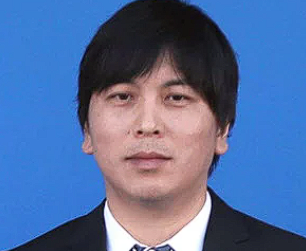In the storied world of Major League Baseball, where the thrills of home runs and no-hitters capture the headlines, a new off-field saga is unfolding that could fit the plot of a Hollywood drama. The central figure is none other than Ippei Mizuhara, the man who once helped bridge the communication gap for Japanese baseball sensation Shohei Ohtani but now stands accused of pilfering millions from the star to satisfy a costly card-collecting hobby and an even more expensive gambling addiction.
Officials say Mizuhara didn’t just step out of bounds; he sprinted into a financial felony. Allegations laid out in a hefty 37-page complaint by federal prosecutors paint a picture of a man who flagrantly siphoned off more than $16 million of Ohtani’s money. The leaked funds reportedly flowed like rivers into two main reservoirs: clearing gambling debts and purchasing around 1,000 baseball cards from venues like eBay and Whatnot.
Mizuhara, operating under the alias “Jay Min,” wasn’t exactly penny-pinching either. The average strike on his card buys was about $325 apiece. Some of these parcels even turned up at Dodger Stadium, whisked away by clubhouse employees unaware they were handling ill-gotten gains. A search of Mizuhara’s vehicle threw up a mini museum of baseball memorabilia, containing cards of big league legends alongside those of Ohtani himself.
The intrigue deepened with the uncovering of Mizuhara’s gambling escapades. Racking up about 19,000 bets with a net loss that could fund a small nation—or at least a minor league team—Mizuhara’s $40.7 million in losses never touched the MLB, perhaps one small mercy in this tangled web of deceit.
The case against Mizuhara started to unravel with the simplest of acts: opening a bank account. When Shohei Ohtani, fresh from Japan and unfamiliar with English, needed a bank account in the U.S., Mizuhara was there to help. What wasn’t part of the plan, however, was Mizuhara maintaining access and then allegedly using Ohtani’s funds as his personal cash cow. With no authorization from Ohtani to manage his finances, Mizuhara ostensibly wielded his linguistic role as a veil to mask his siphoning operations.
The depth of the betrayal has been sharply criticized by U.S. Attorney Martin Estrada, who underscored the egregious breach of trust and the sheer scale of the fraud involved. The revelations also highlighted Mizuhara’s alleged falsifications, including the audacious move of posing as Ohtani to authorize hefty wire transfers to cohorts in his betting circles.
As the legal gears grind into motion, with a court appearance on the horizon in downtown Los Angeles, the somber tale of Ippei Mizuhara serves as a stark reminder of the dark shadows that can lurk behind the glamorous façade of professional sports. For Shohei Ohtani, known for his two-way prowess on the mound and at bat, this off-field ordeal is a test of a different mettle, as he cooperates with law enforcement to unravel the full extent of the financial fouls committed in his name.
The saga, rife with deception, betrayal, and lost millions, may eventually carve a moral into the storied annals of baseball; not all the game’s dangers reside on the field, and not all strikeouts are swung by a bat.
